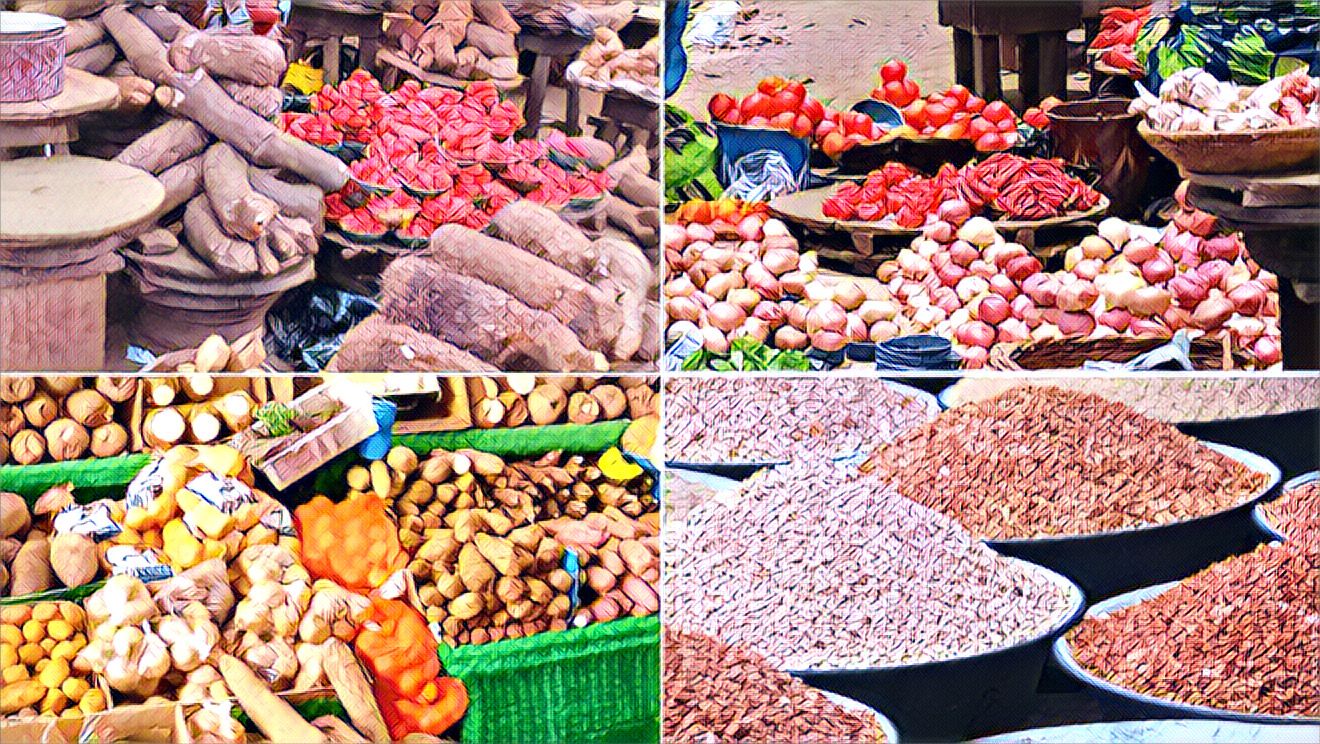
Edited in Prisma app with Lainer
Food prices in Nigeria fell marginally by 3.17% in the third quarter of 2025, according to a new report by geopolitical research firm SB Morgen (SBM) Intelligence. Despite this modest decline, the easing has done little to ease the pressure on Nigerian households, as insecurity and poor logistics continue to fuel food inflation.
Titled “Jollof Index Q3 2025: A Tale of Two Economics,” the report highlights that the average cost of staple foods dropped from ₦27,528 in June to ₦26,656 in September. However, SBM stresses this improvement is fragile and mostly linked to seasonal harvests rather than sustained structural reforms.
“The easing of inflation is largely statistical, not practical,” the report notes.
Security and Logistics: Hidden Costs Driving Inflation
SBM’s analysis reveals that widespread insecurity and transportation challenges add significant unofficial costs, ranging from ₦5,000 to ₦50,000 in fees or payments for armed escorts to the final prices of food products. These “hidden taxes” inflate prices by 20% to 30% and undermine efforts to stabilize markets.
The report urges urgent government action, including declaring a state of emergency on critical federal roads to dismantle illegal checkpoints and extortion networks that drive up logistics costs.
Regional Food Price Trends
- Kano experienced a 6.83% increase in food prices due to insecurity and supply diversion.
- Port Harcourt’s prices rose by 1.84%, attributed to poor road infrastructure.
- Bauchi saw a sharp 15% decline, driven by local harvest yields.
- The South-east and South-south regions continue to face high and sticky food prices because of internal logistics and operational costs.
Ghana’s Success and Lessons for Nigeria
While Nigeria struggles with these structural issues, Ghana achieved a milestone by reducing inflation to single digits, their lowest since 2021. However, SBM warns that Ghana’s gains remain fragile, especially in the northern regions, which still suffer inflation twice the national average.
The report recommends targeted investments in road infrastructure and agricultural self-sufficiency to close regional inflation gaps and sustain economic stability.
Looking Ahead
SBM cautions that the modest relief in Q3 could reverse in Q4 amid rising festive demand unless decisive government measures are taken to secure food-producing regions and reduce transit costs.
The firm advises policymakers to focus beyond annual inflation rates and pay close attention to monthly price volatility and persistently high food costs impacting Nigerian households.


